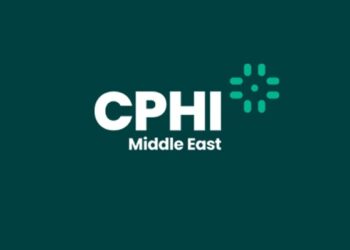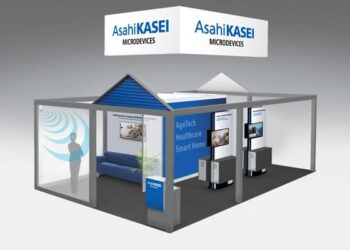Merck and Pfizer announced the treatment of the first patient in a Phase III study of avelumab*, an investigational fully human anti-PD-L1 IgG1 monoclonal antibody, in an advanced renal cell carcinoma (RCC) setting. The study, JAVELIN Renal 101, is the first pivotal trial investigating avelumab in combination with INLYTA® (axitinib), a tyrosine kinase inhibitor (TKI), in patients with previously untreated advanced RCC, and the only Phase III trial currently evaluating an anti-PD-L1 immunotherapy in combination with a vascular endothelial growth factor (VEGF)-receptor TKI in this setting. The 5-year survival rate for patients with distant metastatic RCC is approximately 12 percent.
Chris Boshoff, M.D., PhD., Vice President and Head of Early Development, Translational and Immuno-Oncology at Pfizer Oncology said,Pfizer has a strong heritage in the treatment of metastatic RCC, and through the strategic alliance with Merck, we aim to further accelerate the development of potential therapies to help improve the lives of patients living with this disease.As renal cell carcinoma is an immunogenic type of tumor that can respond to immunotherapy and to anti-angiogenic treatment, there is a strong scientific rationale for combining avelumab with INLYTA® and we believe that this combination may help improve outcomes for patients with this cancer.
JAVELIN Renal 101 is a multicenter, international, randomized (1:1), open-label Phase III trial designed to evaluate the potential superiority, assessed by the progression-free survival (PFS), of first-line avelumab combined with INLYTA® compared with SUTENT®(sunitinib malate) monotherapy, an oral, small-molecule, multi-targeted receptor TKI, in patients with unresectable, locally advanced or metastatic RCC with clear cell component. The study will enroll 583 patients across approximately 170 sites in Asia, Europe, Latin America and North America.
Alise Reicin, M.D., Head of Global Clinical Development at the biopharma business of Merck said,The first patient receiving treatment in this pivotal trial marks an important milestone in the strategic immuno-oncology alliance between Merck and Pfizer.As part of the JAVELIN clinical development program, we are exploring the potential of innovative, rational combination therapies, which combine avelumab with other treatment modalities to address significant unmet needs that exist in challenging cancers, such as advanced renal cell carcinoma.
The clinical development program for avelumab now includes more than 1,600 patients who have been treated across more than 15 tumor types.
INLYTA® is currently approved in the United States for the treatment of advanced RCC after failure of one prior systemic therapy. INLYTA® is also approved by the European Medicines Agency for use in the European Union in adult patients with advanced RCC after failure of prior treatment with SUTENT® or a cytokine. Following its approval in 2012, INLYTA® has become a standard of care for second-line advanced RCC and has been used by an estimated 12,000 metastatic renal cell carcinoma patients in the United States.2 INLYTA® is under investigation in combination with avelumab for the indication studied in this Phase III trial.
*Avelumab is the proposed International Non-proprietary Name for the anti-PD-L1 monoclonal antibody (MSB0010718C). Avelumab is under clinical investigation and has not been proven to be safe and effective. There is no guarantee any product will be approved in the sought-after indication by any health authority worldwide.
About Renal Cell Carcinoma
Renal cell carcinoma accounts globally for 2-3% of all malignancies.3 As of 2012, more than 338,000 new cases of kidney cancer were diagnosed per year worldwide.4 In general, higher incidence rates of renal cell carcinoma occur in Eastern Asia, North America and Central/Eastern Europe.5 Early-stage renal cancers tend to have a better prognosis, compared with advanced/metastatic renal cancers.6
The five-year survival rate for localized kidney and renal pelvis cancer is approximately 90%.1 The five-year overall survival rate for patients with distant metastatic RCC is approximately 12%.1
In the past 7 years, major advances have been made in the improvement of clinical outcomes with the introduction of new therapies.7 The introduction of these therapies has extended median survival rates for metastatic renal cell carcinoma.7
About Avelumab
Avelumab (also known as MSB0010718C) is an investigational fully human anti-PD-L1 IgG1 monoclonal antibody. By inhibiting PD-L1 interactions, avelumab is thought to enable the activation of T-cells and the adaptive immune system. By retaining a native Fc-region, avelumab is thought to potentially engage the innate immune system and induce antibody-dependent cell-mediated cytotoxicity (ADCC). In November 2014, Merck and Pfizer announced a strategic alliance to co-develop and co-commercialize avelumab.
About INLYTA® (axitinib)
INLYTA is indicated for the treatment of advanced RCC after failure of one prior systemic therapy. INLYTA, a kinase inhibitor, is an oral therapy that is designed to inhibit tyrosine kinases, including vascular endothelial growth factor (VEGF) receptors 1, 2 and 3; these receptors can influence tumor growth, vascular angiogenesis and progression of cancer (the spread of tumors).
Selected Safety Information for INLYTA® (axitinib)
Hypertension including hypertensive crisis has been observed. Blood pressure should be well-controlled prior to initiating INLYTA. Monitor for hypertension and treat as needed. For persistent hypertension despite use of anti-hypertensive medications, reduce the INLYTA dose. Discontinue INLYTA if hypertension is severe and persistent despite use of antihypertensive therapy and dose reduction of INLYTA, and discontinuation should be considered if there is evidence of hypertensive crisis.
About SUTENT® (sunitinib malate)
SUTENT is an oral multi-kinase inhibitor that works by blocking multiple molecular targets implicated in the growth, proliferation and spread of cancer. SUTENT was approved in 2006 and is indicated for the treatment of advanced/metastatic renal cell carcinoma.
About Merck-Pfizer Alliance
Immuno-oncology is a top priority for Merck and Pfizer. The global strategic alliance between Merck and Pfizer enables the companies to benefit from each other’s strengths and capabilities and further explore the therapeutic potential of avelumab, an investigational anti-PD-L1 antibody initially discovered and developed by Merck. The immuno-oncology alliance will jointly develop and commercialize avelumab and advance Pfizer’s PD-1 antibody. The alliance is focused on developing high-priority international clinical programs to investigate avelumab, as a monotherapy, as well as combination regimens, and is striving to find new ways to treat cancer.
Pfizer Inc.: Working together for a healthier world™
At Pfizer, we apply science and our global resources to bring therapies to people that extend and significantly improve their lives. We strive to set the standard for quality, safety and value in the discovery, development and manufacture of healthcare products. Our global portfolio includes medicines and vaccines as well as many of the world’s best-known consumer healthcare products. Every day, Pfizer colleagues work across developed and emerging markets to advance wellness, prevention, treatments and cures that challenge the most feared diseases of our time. Consistent with our responsibility as one of the world’s premier innovative biopharmaceutical companies, we collaborate with health care providers, governments and local communities to support and expand access to reliable, affordable health care around the world. For more than 150 years, Pfizer has worked to make a difference for all who rely on us.
About Merck
Merck is a leading science and technology company in healthcare, life science and performance materials. Around 50,000 employees work to further develop technologies that improve and enhance life – from biopharmaceutical therapies to treat cancer or multiple sclerosis, cutting-edge systems for scientific research and production, to liquid crystals for smartphones and LCD televisions. In 2015, Merck generated sales of € 12.85 billion in 66 countries.
Founded in 1668, Merck is the world’s oldest pharmaceutical and chemical company. The founding family remains the majority owner of the publicly listed corporate group. Merck, Darmstadt, Germany holds the global rights to the Merck name and brand. The only exceptions are the United States and Canada, where the company operates as EMD Serono, MilliporeSigma and EMD Performance Materials.

















